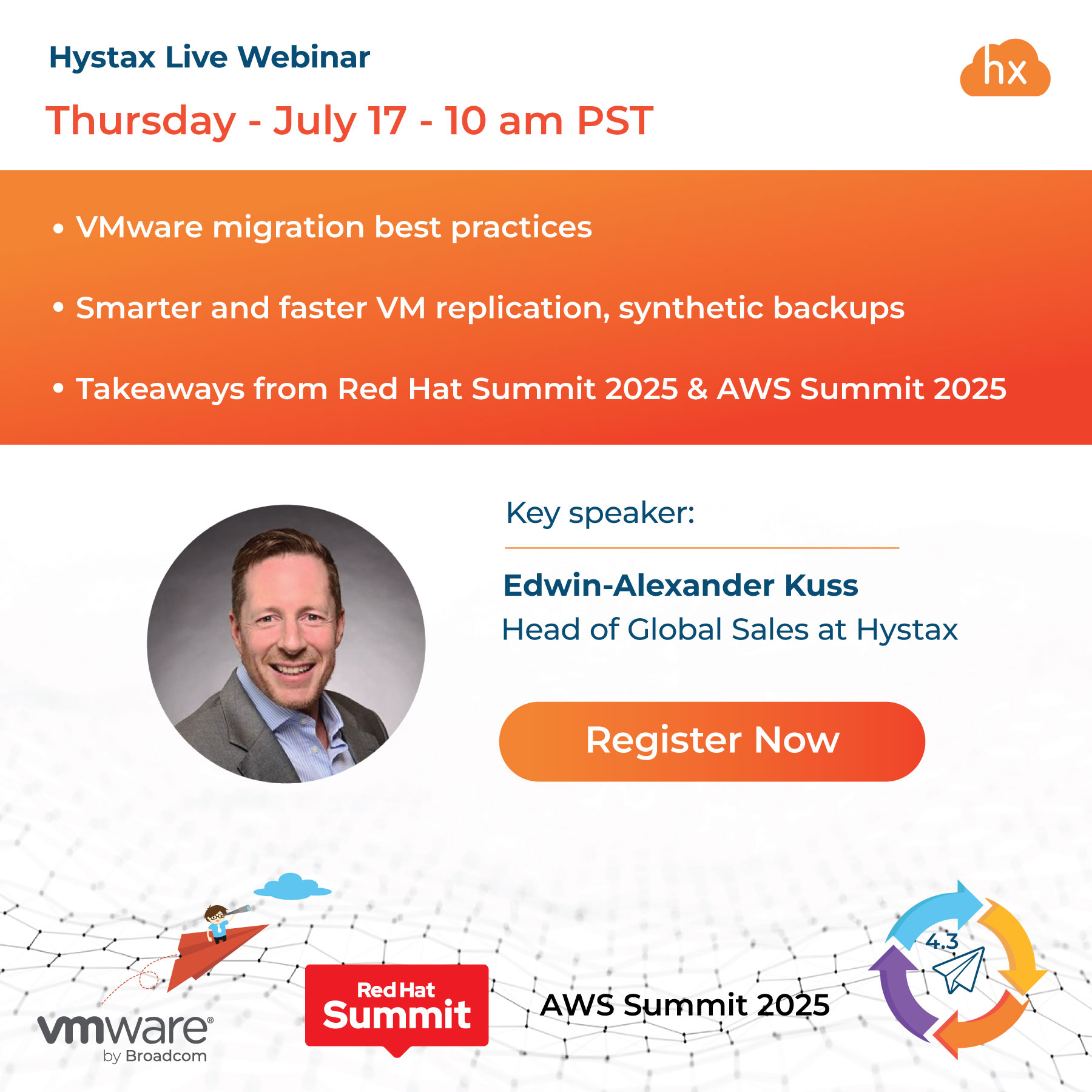Introducing the hybrid cloud
More than ever before, businesses are increasingly using cloud platforms to reduce costs, increase flexibility, enhance reliability, and to avoid risking data loss. Among the various types of cloud infrastructure out there, there’s one that ensures optimal cost-efficiency, performance, and scalability – the hybrid cloud.
The hybrid cloud is a cloud computing, storage, and services environment composed of at least one private cloud platform, such as; VMware or OpenStack, and at least one public cloud provider, such as; Amazon Web Services or Microsoft Azure, connected by orchestration. The hybrid cloud enables businesses to select the optimal combination of resources for each application or workload, and to re-allocate them whenever necessary. Some organizations have no other option but to use a hybrid cloud, since this is the only way for them to keep sensitive data exposure to a minimum, while having the ability to use public cloud platforms and their related resources.
However, the hybrid cloud often involves additional infrastructure complexity, and when you add in instances of mishandling, it can become very expensive. This is where hybrid cloud management platforms come to the rescue. These enable organizations to manage the ever-increasing complexity of the private and public cloud combination.
What is a hybrid cloud management platform?
Hybrid cloud management is basically the process of making multiple private and public cloud deployments work together, thereby controlling these diverse environments. A hybrid cloud management platform (HCMP) is a software toolset that encompasses the functionality necessary to manage all the assets, across private and public clouds through a single user interface.
Although there are numerous HCMPs available on the market, it is preferable to opt for those that support certain features. Now, let’s review those features and find out what makes them indispensable.
What features make a hybrid cloud management platform effective?
1. Integration capabilities
First and foremost, any HCMP should be capable of integrating with internal and external systems in order to manage multiple cloud services, whether they are private cloud platforms, CSP hosted private clouds or public cloud services. If a cloud management platform doesn’t provide flexible integration, it may make it impossible for the organization to take full advantage of the hybrid cloud.
2. Ability to bring disparate data sources together
An effective HMPC should provide a convenient way to monitor IT environments all in one place — a single pane of glass that enables your IT team to track everything, adjust views, and obtain actionable information on the current state of things. This feature is critical when it comes to enterprise businesses with a developed IT infrastructure, multiple levels of stakeholders, and different implemented software and hardware.
3. Cost management and control
Another crucial hybrid cloud management platform feature is accurate consumption tracking, reporting, and forecasting. With any hybrid cloud, it’s easy — often too easy — to consume much more infrastructure than what was originally planned. Moreover, cloud pricing is typically complex, so it’s often difficult to keep abreast of price changes. All of that, coupled with difficulties in predicting future costs, affects long-term IT infrastructure budgeting. An effective HCMP should tackle these issues, and ideally be capable of setting custom alert rules to nip the cloud bill overrun problems in the bud.
4. Resource management, automation, and orchestration
A cloud management platform can be considered effective only when it provides resource management, which includes:
- The capability of repeatedly monitoring existing, and discovering new applications, storage, and services across private and public clouds.
- The ability to apply tags — or assign attributes — to cloud resources, to facilitate effective management.
- Any-to-any cloud migration capability, including shifting any asset from a private to a public cloud service, and vice versa.
- Orchestration, meaning the ability to arrange, coordinate, and manage cloud resources automatically.
- Provisioning and de-provisioning of cloud resources.
All of this allows your IT team to concentrate on important issues, rather than dealing with a plethora of repetitive, routine tasks single-handedly.
5. Security
The protection of sensitive data becomes challenging when it comes to hybrid cloud environments. Therefore, hybrid cloud management platforms must be able to address this issue by using encryption in target cloud services. In addition, HCMPs should ensure role-based access control with a defined manager, developer, cloud admin, and end-user roles.
Another important security-related issue is disaster recovery. HMPCs should provide business continuity and protect mission-critical data, workloads, and systems during an IT disaster.
6. Governance
An HCMP should manage hybrid cloud services in accordance with organization policies, as well as industry compliance requirements. Failure to do so may result in severe fines and penalties, loss of business-critical data, or even jeopardize the future of your business.
In conclusion
The hybrid cloud is increasingly popular due to its set of valuable characteristics – the market was valued at USD 45.70 billion in 2019 and is expected to grow threefold by 20251. Armed with the hybrid cloud, your organization can keep sensitive, business-critical applications and workloads with predictable, constant performance and capacity requirements on private clouds, while moving dynamic and less critical workloads to the public cloud.
Effective hybrid cloud management platforms provide proper integration, resource and cost management, automation and orchestration, security and governance, to leverage both types of clouds. There are numerous solutions on the market, offered by dozens of vendors, so it’s important to choose wisely, while keeping in mind the features outlined in this article.
OptScale, Hystax’s disruptive, new hybrid cloud management platform, is the only solution that incorporates all of the above features. It enables you to control and optimize your IT budget, forecast cloud costs before and after migration, and to create and execute optimization scenarios to get the best value for your money.
Additional hybrid cloud management features within the OptScale platform provide seamless any-to-any cloud migration capabilities, as well as fully-automated backup and disaster recovery.
With a single pane of glass at your disposal, your organization can monitor its entire IT environment, enabling you to make data-based, long-term budgeting decisions and to build a sound and secure hybrid cloud strategy.
Read our previous article and discover How to keep your cloud costs under control.



